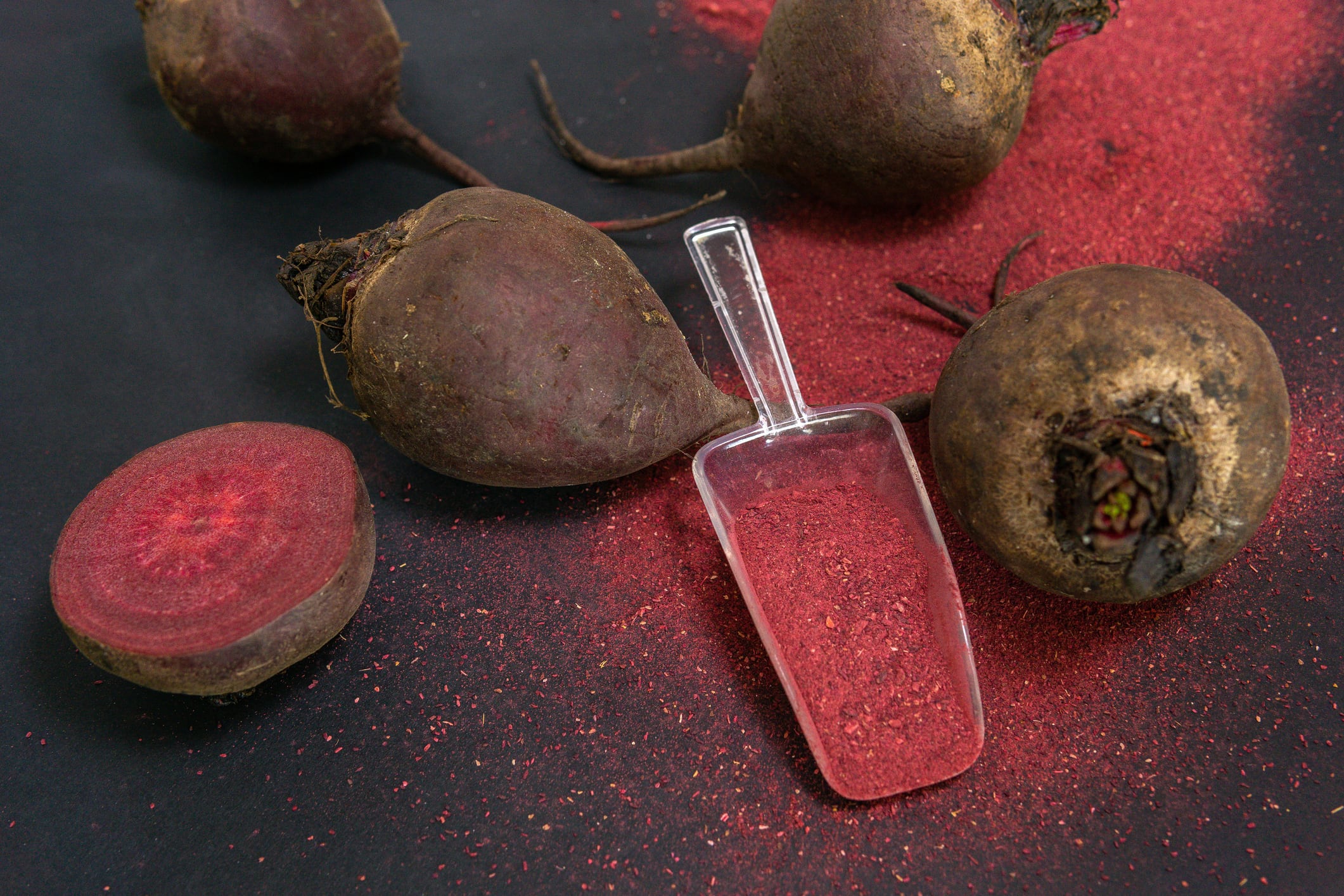Twelve weeks of dietary supplementation with a beetroot extract led to significant reductions in pulse wave velocity (PWV), considered a ‘gold standard’ for measuring arterial stiffness, according to findings published in the American Journal of Physiology – Heart and Circulatory Physiology.
The study, performed by researchers in Brazil and the United States, is reportedly the first to examine the effect of 12 weeks of dietary nitrate supplementation (via beetroot extract) on carotid artery stiffness in this group of women.
“The results are promising, as they suggest that dietary nitrate supplementation could become an effective, non-pharmacological intervention to combat arterial stiffening in postmenopausal women,” said principal investigator Dr. Thiago Alvares from the Federal University of Rio de Janeiro. “With no significant change in blood pressure, beetroot extract provides a safe and natural way to improve vascular health.”
Growing interest
Consumer interest in beetroot juice and extracts has surged in recent years, largely driven by athletes’ growing interest in their potential to enhance performance.
Nitrate is one of the dietary ingredients endorsed by World Athletics for its general ability to boost performance, and reports indicate that sports teams worldwide are incorporating beetroot juice as part of their nutrition strategies.
The benefits of beetroot are linked to the nitrate concentration in the vegetable. Inorganic nitrate is converted into nitrite and the potent vasodilator nitric oxide (NO). Previous research has reported its role in lowering blood pressure and improving overall cardiovascular health.
Sales growth
According to data from the American Botanical Council's most recent Herb Market Report , beet is number eight on the list of top selling herbal supplements in the U.S. mainstream retail channel, with $65,022,645 in sales in 2023, an increase of 108% from 2022.
In addition, beet is number 13 in the natural channel, with $10,016,171 in sales in 2023 (an increase of 22.5% from the previous year).
The new study used a standardized beetroot extract called Sabeet from Sabinsa Corporation.
Commenting on the findings, Shaheen Majeed, global CEO and managing director at Sami-Sabinsa, said: “Given the increase in cardiovascular disease risks among postmenopausal women, this study opens the door to innovative dietary interventions, with beetroot extract potentially becoming a recommended strategy for improving vascular function and reducing long-term cardiovascular risks.”
Study details
Dr. Alvares and his co-workers noted that menopause is associated with a reduction in the bioavailability of NO, which can contribute to increased arterial stiffness and subsequently increase the risk of cardiovascular disease-related issues in these women.
Twenty postmenopausal women were recruited to participate in the randomized, double-blind, placebo-controlled and parallel-design trial. The women were randomly assigned to received either a nitrate-rich beetroot extract or a nitrate-depleted beetroot extract.
Results showed that women in the nitrate-rich beetroot extract group experienced significant improvements in carotid artery stiffness parameters. In addition to PWV, improvements were also recorded for other measures of stiffness, including beta-stiffness, elastic modulus and the augmentation index.
“Our findings revealed that nitrate-rich beetroot extract resulted in substantial increases in fasting serum nitrate and nitrite concentrations, with peak levels observed at week 8, followed by a plateau or slight decrease by week 12,” the researchers wrote. “This suggests that enhanced reduction of nitrate to nitrite and the subsequent increase in resting NO bioavailability become physiologically significant after approximately 8 weeks of supplementation.”
On the other hand, no changes in blood pressure measures were recorded for either group.
“These findings suggest that beetroot extract supplementation can be recommended as an alternative nutritional strategy to mitigate carotid artery stiffening in postmenopausal females,” the researchers concluded.
Source: American Journal of Physiology-Heart and Circulatory Physiology, Volume 328, H937–H944. doi: 10.1152/ajpheart.00065.2025. “Effect of 12-week dietary nitrate supplementation on carotid arterial stiffness in postmenopausal females”. Authors: V. dos Santos Pinheiro, et al.


